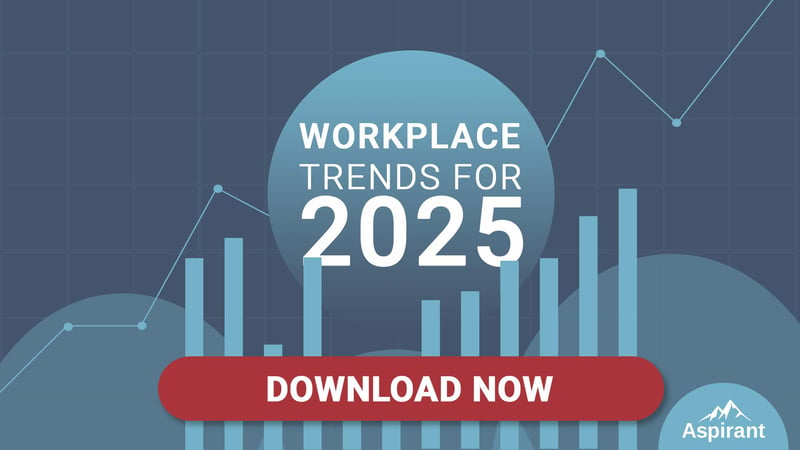The popularity of recruiting styles often shifts every few years. One year, outsourcing is in, and all the best people come from outside your company’s influence. The next year, insourcing is the only way, and the best people are already part of your organization! This can be more than a little confusing.
As an HR leader, you want to make sure that your recruiting strategy brings in the best talent for the job. You want to recruit and retain employees who contribute to and grow with the success of your company.
That’s why it’s important to evaluate the facts and apply them to your specific organization when it comes to staffing. There’s no one-size-fits-all strategy for recruiting and workforce planning. Companies in the same industry can have drastically different processes, all of which can be successful.
Here are five steps to help find your perfect recruitment solution.
Assess the strategic plan, corporate goals, and core competencies of your organization.
- What does your company’s strategic plan look like? Are you intending to grow your customer base with new products and services? Are you enhancing your current offerings? Or is your focus on reducing cost and increasing efficiency? The answers to these questions can have a powerful impact on your recruiting strategy.
- What are your current high level corporate goals? Is this year devoted to increase sales of current products/services, or developing new ones? While similar to the last question, here you are considering this specific year. What does your company want to accomplish right now? Why type of people do you need to do it?
- What are your core competencies and where do you lack? What are you really good at? Maybe you manufacture an amazing product your customers love, but you’re not very good at acquiring new customers. Perhaps you have incredible software developers, but you suffer in accounting. Identify your core competencies and the areas where you want, but do not have, competency.
Analyze your current Human Resources bandwidth.
- Yes, you also matter in this equation. Make sure HR planning is factored into corporate goal setting. Are you an HR department of one? Do you have a full staff; someone who handles benefits, someone who handles hiring, etc.? Or, do you already utilize HR consulting? To put it simply, do you have the time and resources to recruit on your own? Be honest with yourself. You’re not doing your company justice if you are overcommitting.
- Also, dig into the weeds of the previous step. What are your core competencies as an HR Director and department? Is finding, choosing and acquiring talent a skill you’ve perfected, or is it something you struggle with? Know your own limits and proficiency.
Evaluate the needs and required skills for various positions and departments.
- If you’re looking for software developers, do you need someone who can code in C#, a popular and commonly known coding language? Or is most of your company built on a language such as Erlang, with hard to find experts? Basically, how specific is the required knowledge for the positions you’re filling? How common or rare?
- How often will you need this position? Is there enough work to fill 40 hours per week? Are the positions temporary or permanent?
- Will the open positions require someone on site, or can they be done remotely?
Conduct a cost analysis of the various strategies.
- What are the costs associated with outsourcing, such as fees, logistics, contract management etc?
- What are the training costs? Outsourcing to an accounting expert will take a brief rundown of current processes, whereas hiring an accounting person with less experience will require a considerable training effort.
- What are the cost of benefits to insourced employees, such as healthcare, 401(k), etc.?
Consider the value added of each option, determine what’s most important to your company and look at the big picture.
- You realize a high cost of training when a position is insourced, but you value having someone 100% dedicated to your company with insider knowledge. Which is more important: saving money or getting the perfect fit? This is not a trick question and answers can vary.
- You worry about the dedication of outsourced workers, but you’ve decided your company is not good at selling. Does the “family” atmosphere matter more to you than increased sales? This is not a trick question and can vary.
- As HR Director you want to be involved in talent acquisition, but you’re afraid you don’t have the time to devote to doing it right. What is most important? This is not a trick question and can vary.
See what I did there? There’s no perfect right answer. You may find that some positions lend well to outsourcing talent acquisition, or outsourcing talent completely. Others may benefit greatly from insourced and in-house employees, and that’s where co-sourcing can come in.
Interested in learning about the emerging dynamics in HR? Check out our eBook: Workplace Trends for 2025.

How Aspirant Can Help
Aspirant's Organizational Effectiveness experts can help develop and implement a talent acquisition process that makes your recruiting a competitive advantage. Use the form below to schedule a casual discussion about how we can better position your company for success.